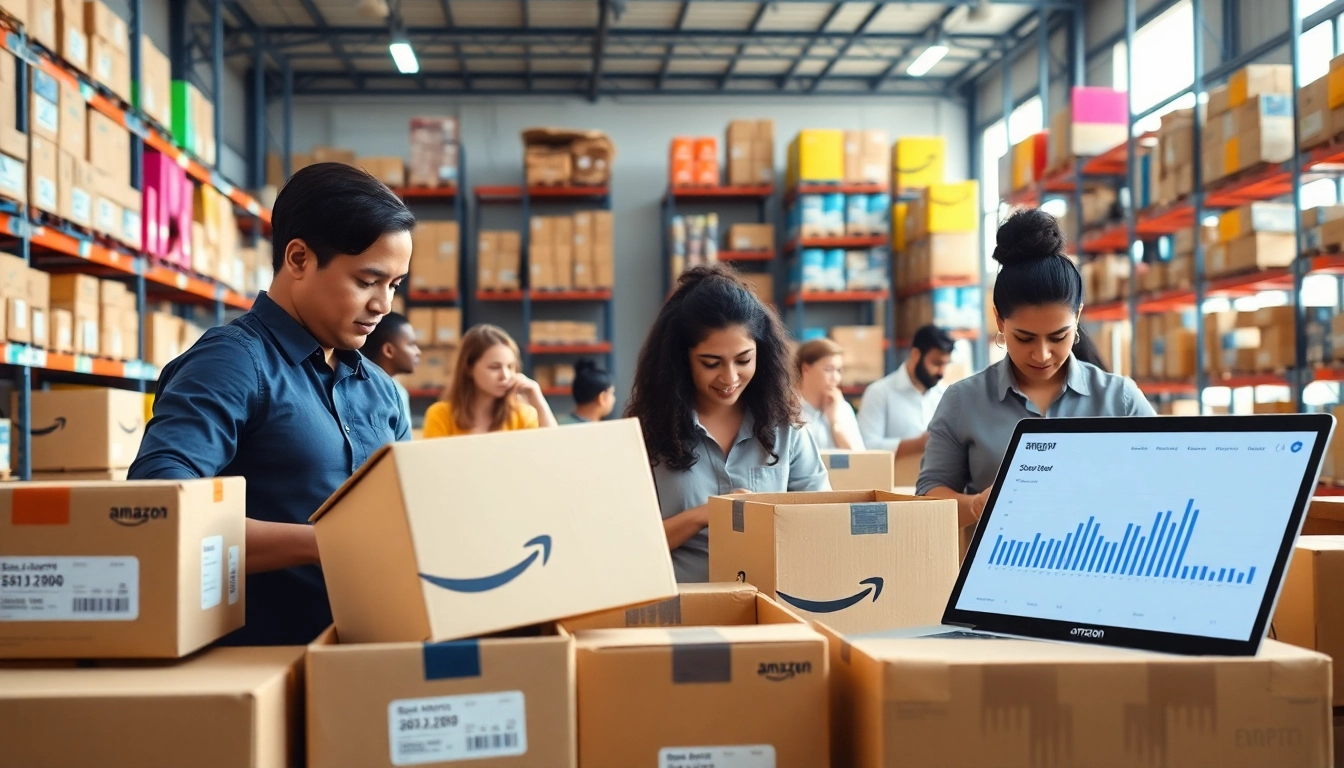Understanding Amazon FBA Wholesale Basics
What is Amazon FBA wholesale?
Amazon FBA wholesale refers to a sales model where businesses purchase products in bulk from manufacturers or wholesalers at discounted rates and resale them on Amazon. The process utilizes Amazon’s Fulfillment by Amazon (FBA) service, which sees Amazon handle storage, packaging, shipping, and customer service for the sellers. This model enhances efficiency and allows sellers to scale their operations without the need for complex logistics. Unlike retail arbitrage or private labeling, which often involve sourcing single items or creating a unique brand, FBA wholesale focuses on leveraging established brands and products.
Benefits of using Amazon FBA wholesale
The advantages of adopting the amazon fba wholesale model are numerous:
- Scalability: Businesses can easily scale their operations as they benefit from Amazon’s vast infrastructure.
- Trust and Credibility: Selling established brands provides an inherent level of trust that can attract more customers.
- Automated logistics: With Amazon handling shipping and customer service, sellers can focus more on growth strategies.
- Access to Prime members: Products eligible for Prime lead to potentially higher sales because of the two-day shipping option offered to Prime members.
Key terminologies in Amazon FBA wholesale
Understanding the lingo associated with Amazon FBA wholesale is essential for successful navigation of this model. Here are some key terms:
- ASIN (Amazon Standard Identification Number): A unique identifier for products on Amazon.
- Fulfillment Center: Amazon’s warehouses where products are stored and shipped from.
- Product Cost: The total amount spent to acquire the product from a supplier.
- Retail Price: The price at which the product is sold to end customers on Amazon.
Finding Reliable Suppliers for Amazon FBA Wholesale
How to identify reputable suppliers
Finding reliable suppliers is crucial for the success of your FBA wholesale business. Here’s how you can identify trustworthy wholesalers:
- Research Supplier Background: Check reviews and ratings on platforms such as Google and social media.
- Request References: Ask for references from other businesses that have worked with the supplier.
- Verify Credentials: Look for certifications, licenses, and proof of legitimate business operations.
Negotiating with wholesalers
Negotiating with wholesalers can significantly impact your profitability. Here are steps to consider when negotiating:
- Understand Market Rates: Research typical pricing for products to have leverage during negotiations.
- Build Relationships: Establishing a rapport can often lead to better terms.
- Be Prepared to Walk Away: Knowing your limits will help you negotiate better deals.
Evaluating supplier performance
Post-engagement, continuously evaluate your suppliers to ensure they meet your expectations. Here are key performance metrics to consider:
- Quality of Products: Conduct random checks on the quality of items received.
- Delivery Timeliness: Monitor how frequently the supplier meets deadlines.
- Pricing Consistency: Ensure that the price remains stable to avoid unexpected costs.
Preparing Your Products for Amazon FBA Wholesale
Product selection criteria for Amazon FBA wholesale
Your success in amazon fba wholesale largely depends on your product selection. Consider the following criteria:
- Market Demand: Use tools for keyword research and competitive analysis to find products that customers actively search for.
- Profit Margins: Calculate the cost of goods sold against potential retail price to identify profitable products.
- Shelf Life: Prefer products with longer shelf lives to avoid dealing with expired inventory.
Brand compliance and legal considerations
When sourcing products, ensure that you adhere to brand compliance and legal standards. Consider these essential aspects:
- Trademark Rights: Ensure that products don’t infringe on any trademark rights or patents.
- Authorized Reseller Agreements: Obtain written permission where necessary, especially with branded products.
- Regulatory Compliance: Ensure that your products comply with safety regulations and legal standards in your market.
Effective packaging and labeling
Effective packaging and labeling are vital not only for customer satisfaction but also for operational efficiency. Consider the following:
- Branding: Utilize branding strategies in your packaging to create recognition.
- Packaging Type: Choose durable packaging that sustains the journey from your supplier to Amazon.
- Labeling Requirements: Familiarize yourself with Amazon’s specific labeling and packaging guidelines.
Setting Up Your Amazon Seller Account for Wholesale
Steps to create an Amazon Seller account
Setting up your Amazon Seller account is straightforward. Follow these steps:
- Choose your Account Type: Decide between individual or professional accounts based on your business volume.
- Provide Required Information: Fill in your business details, tax information, and bank account for payouts.
- Complete the Account Setup: Confirm your account and verify your email to finalize the setup.
Optimizing product listings for better visibility
To enhance your visibility on Amazon, optimize your product listings. Consider the following strategies:
- SEO-Friendly Titles: Use relevant keywords in your product titles for better searchability.
- High-Quality Images: Provide multiple high-resolution images that showcase the product.
- Informative Descriptions: Write clear, concise descriptions that include features, benefits, and specifications.
Pricing strategies for Amazon FBA wholesale
Effective pricing is crucial for competitiveness in the wholesale marketplace. Consider the following pricing strategies:
- Competitive Pricing: Research competitor prices and position your pricing competitively.
- Value-Based Pricing: Focus on the perceived value of your product to set prices accordingly.
- Dynamic Pricing: Utilize software that allows for adjustments based on market trends and inventory levels.
Scaling Your Business with Amazon FBA Wholesale
Tracking inventory and sales performance
Utilizing inventory management tools can greatly assist in tracking your stock levels and sales performance. Here are strategies to consider:
- Sales Analytics Tools: Implement tools that provide insights into sales data, trends, and forecasting.
- Inventory Alerts: Set up alerts for low inventory levels to prevent stockouts.
- Performance Metrics: Regularly assess metrics such as turnover rates and gross margins to gauge business health.
Marketing strategies for Amazon FBA wholesale
Effective marketing strategies can boost visibility and sales on Amazon. Here are some actionable tactics:
- PPC Advertising: Utilize Amazon’s Pay-Per-Click advertising to drive targeted traffic.
- Social Media Integration: Promote your products via social media platforms to create awareness.
- Influencer Marketing: Collaborate with influencers to reach broader audiences and drive sales.
Expanding your product range
As your business grows, diversifying your product range can lead to increased sales and reduced risk. Consider the following strategies:
- Market Research: Continuously analyze emerging trends and customer feedback to identify new product opportunities.
- Expand into New Categories: Gradually introduce related product lines that complement your existing offerings.
- Utilize Seasonal Products: Incorporate seasonal items to capitalize on fluctuating market demands.






